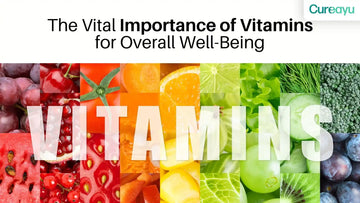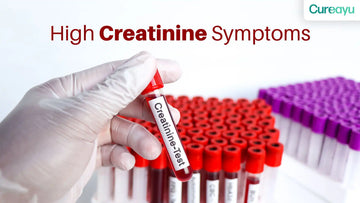Vitamins are vital nutrients that play an essential role in maintaining our health and well-being. Despite being required in small amounts, their impact on bodily functions is immense. From boosting immunity to ensuring the proper functioning of organs, vitamins are indispensable for a healthy life. In this blog, we will explore what vitamins are, why they are crucial for our body, the essential vitamins we need, and the numerous advantages and uses of these micronutrients.
What are Vitamins?
Vitamins are organic compounds that our bodies need to function correctly. Unlike macronutrients such as carbohydrates, proteins, and fats, vitamins are required in much smaller quantities. There are 13 essential vitamins, each playing a unique role in maintaining bodily functions. These vitamins can be water-soluble or fat-soluble, influencing how they are absorbed and stored in the body. Water-soluble vitamins (like Vitamin C and the B-complex vitamins) are not stored and need to be consumed regularly, while fat-soluble vitamins (such as Vitamins A, D, E, and K) can be stored in the body's fatty tissues.
Also Read: Weak Immune System Symptoms: Understanding and Addressing the Signs
Why are Vitamins Important for the Body?
Vitamins are crucial for various biochemical processes that sustain life. They act as catalysts in metabolic pathways, helping to convert food into energy. Vitamins are also essential for maintaining the health of our skin, bones, and vision. They play a vital role in immune function, protecting the body against diseases and infections. Without an adequate intake of vitamins, our bodies would be unable to perform these critical functions effectively, leading to various health issues.
Essential Vitamins for the Body
1. Vitamin A: Important for vision, immune function, and skin health. It helps maintain the health of the retina and supports overall eye health.
2. Vitamin B1 (Thiamine): Essential for energy metabolism and nerve function. It helps convert carbohydrates into energy and is crucial for the functioning of the heart and muscles.
3. Vitamin B2 (Riboflavin): Supports energy production and skin health. It also helps in the breakdown of fats, drugs, and steroid hormones.
4. Vitamin B3 (Niacin): Important for energy production and DNA repair. It aids in the conversion of food into energy and supports the functioning of the digestive system.
5. Vitamin B5 (Pantothenic Acid): Essential for the synthesis of coenzyme A, critical for fatty acid metabolism. It also plays a role in hormone and cholesterol production.
6. Vitamin B6 (Pyridoxine): Important for protein metabolism and red blood cell production. It supports neurotransmitter synthesis and helps regulate mood and sleep patterns.
7. Vitamin B7 (Biotin): Essential for carbohydrate, fat, and protein metabolism. It also supports healthy skin, hair, and nails.
8. Vitamin B9 (Folate): Important for DNA synthesis and cell division. It is especially crucial during pregnancy for fetal development.
9. Vitamin B12 (Cobalamin): Essential for nerve function and red blood cell production. It also plays a role in DNA synthesis and energy production.
10. Vitamin C: Important for collagen synthesis, immune function, and as an antioxidant. It helps protect cells from damage and aids in the absorption of iron.
11. Vitamin D: Essential for calcium absorption and bone health. It also supports immune function and muscle health.
12. Vitamin E: Acts as an antioxidant, protecting cells from damage. It also supports immune function and skin health.
13. Vitamin K: Important for blood clotting and bone health. It helps in the synthesis of proteins required for blood coagulation.
Also Read: Detox Water Benefits: A Refreshing Way to Boost Your Health
Why are Vitamins Necessary in the Diet?
Vitamins are not produced in sufficient quantities by the body, making it essential to obtain them from our diet. A balanced diet rich in fruits, vegetables, lean proteins, and whole grains can provide the necessary vitamins. However, certain factors like age, health conditions, and lifestyle choices can affect vitamin absorption and increase the need for supplementation. Ensuring adequate vitamin intake through diet or supplements can prevent deficiencies and promote optimal health.
Advantages of Vitamins
1. Boosting Immune Function: Vitamins like C and E strengthen the immune system, helping to ward off infections.
2. Supporting Bone Health: Vitamins D and K are crucial for calcium absorption and bone density.
3. Enhancing Skin Health: Vitamins A, C, and E contribute to healthy skin by promoting collagen production and protecting against damage.
4. Promoting Eye Health: Vitamins A and E support vision and prevent age-related eye conditions.
5. Improving Energy Levels: B vitamins aid in energy metabolism and reduce fatigue.
6. Supporting Mental Health: Vitamins B6, B9, and B12 are important for brain function and mental health.
7. Aiding in Digestion: Vitamins like B1, B2, and B3 help convert food into energy and support digestive health.
8. Preventing Birth Defects: Folate (Vitamin B9) is crucial during pregnancy to prevent neural tube defects.
9. Reducing Inflammation: Vitamins A, C, and E have anti-inflammatory properties that can reduce chronic inflammation.
10. Supporting Cardiovascular Health: Vitamins like B6, B12, and folate help regulate homocysteine levels, reducing the risk of heart disease.
Also Read: The Benefits of Ayurveda: A Holistic Approach to Wellness
Uses of Vitamins
1. Preventing Deficiencies: Regular intake of vitamins prevents deficiencies that can lead to health issues.
2. Supporting Growth and Development: Vitamins are crucial for the growth and development of children.
3. Enhancing Athletic Performance: Athletes use vitamins to improve performance and recovery.
4. Boosting Immunity: Vitamin supplements can help strengthen the immune system during flu season.
5. Promoting Healthy Aging: Vitamins like C and E protect against age-related damage and support healthy aging.
6. Supporting Pregnancy: Prenatal vitamins ensure adequate nutrition for both mother and baby.
7. Improving Skin Health: Vitamin supplements can improve skin texture and reduce signs of aging.
8. Managing Chronic Diseases: Vitamins play a role in managing conditions like diabetes and cardiovascular diseases.
9. Supporting Mental Health: Certain vitamins help in the management of mental health conditions like depression and anxiety.
10. Aiding Recovery: Vitamins support recovery from illnesses and surgeries by boosting immune function and promoting healing.
Conclusion
Vitamins are indispensable to our health, playing vital roles in numerous bodily functions. From supporting immune function and bone health to enhancing skin and mental health, the importance of vitamins cannot be overstated. Ensuring a balanced diet rich in essential vitamins, along with supplements when necessary, can help maintain optimal health and prevent deficiencies. By understanding the significance of vitamins and incorporating them into our daily routine, we can enhance our overall well-being and lead healthier, more vibrant lives.








